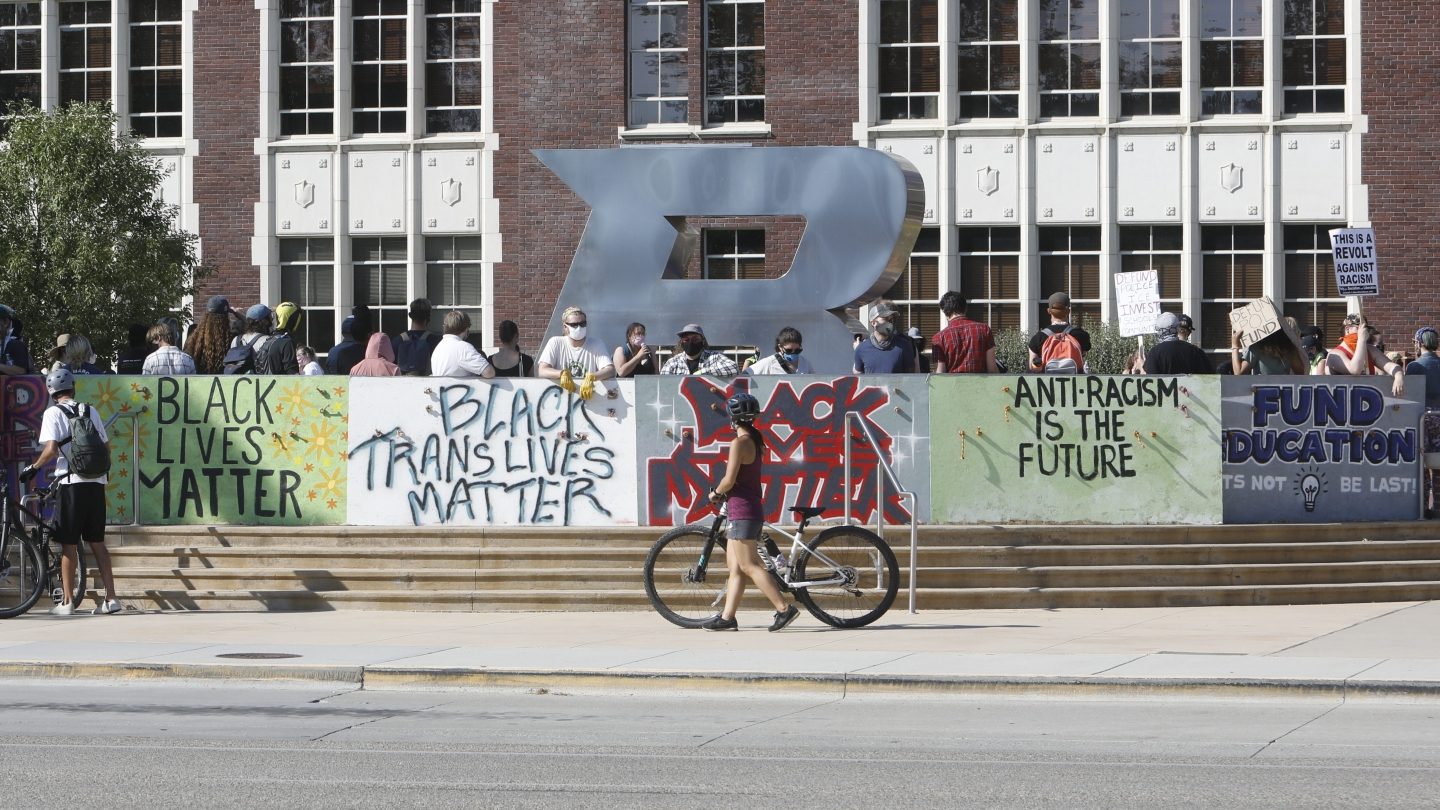
Measuring Idaho’s Social Justice Advocacy on Campus
By Anna K. Miller & Dr. Scott Yenor
Social justice, as it plays out in the education sphere, seeks primarily one thing: diversion of higher education toward political activism and ideological indoctrination. And as anyone with eyes to see has noticed, it is taking over America’s colleges and universities.
Social justice as a general theory splits the world into separate identity groups — oppressed and privileged. The oppressed, the theorists contend, can liberate themselves by destroying the structures that keep them down. This requires silencing the “privileged” and redistributing goods and honors. Put another way, it requires a revolution of sorts. Opposition to the social justice agenda is therefore viewed as immoral and must be destroyed.
In higher education, this means overhauling the university to support social justice. Tactically, partisans seek to retrain students’ minds by infusing administration, policies, hiring, curriculum, and residence life with social justice ideology.
The social justice education movement, popular in our coastal schools, has come for Idaho universities. A recent report from the Idaho Freedom Foundation and Claremont Institute tells the fascinating tale.
Our project begins at Boise State University (BSU). BSU’s social justice regime is not as far along as Ohio State University’s, where over 100 employees are dedicated to its diversity and inclusion mission. But it is building, and what it’s constructing, if successful, is a battleplan for others to follow. In Fall 2017, Boise State’s president formed a Commission on Diversity and Inclusion. This Commission set a breathtaking goal for the school: transform the “dominant culture” into a new “welcoming” one. In social justice newspeak, this means destroying meritocracy and dishonoring “whiteness” while catering to the whims of every allegedly aggrieved minority. In the name of a “welcoming” culture, the Boise Police Department was kicked off campus. The university has been adhering to the Commission’s roadmap ever since, as our report shows.
To begin, BSU hired administrators to carry out its social justice goals starting with a Director of Diversity and Inclusion. The director then identified and empowered student activists on campus through a university-funded student board for “inclusive excellence.” Lately, he has called for a “revolution” by ensuring that the student board has a role in approving all campus vendors.” The university will soon continue its search for a Vice Provost of Equity and Inclusion.
Our report develops a unique measure to show how far general education requirements are infused with social justice ideology. All students must take a 3-credit course dedicated to diversity and inclusion. All students must take courses in “intellectual life,” where 8 of the 11 courses are infused with social justice ideology. Students must take 3 courses in social sciences, where 15 of the 28 courses emphasize social justice. Both course offerings in the mandatory oral communications requirement are social justice courses. No student can avoid courses dedicated to social justice ideology, and many will have to take several courses dedicated to it.
Colleges across the campus have adopted Statements of Shared Values expressing their commitment to “diversity,” “equity,” and “inclusion.” Shared Values are soon translated into mission statements. From there, personnel and resources will be dedicated to these causes. Boise State is in the infancy of social justice development in this regard, while Ohio State is a full-grown adult.
Majors like social work, history, gender studies, sociology, and criminal justice have mission statements, program learning outcomes, and core classes dedicated to social justice education. Academic units like the College of Engineering, the College of Business and Economics, and the Graduate College prioritize social justice in hiring and in future administrative priorities.
Social justice now affects where students live and sleep, through programming controlled by residence hall directors and the broader division of student life. Residence Life emphasizes its commitment to promoting an “inclusive” and “diverse” community. Residence hall directors’ biographies reveal their promotion of social justice is a prerequisite for being a part of the selection criteria for getting hired by student housing.
From administration policies, to curriculum and residence life — BSU students cannot escape wave after wave of social justice advocacy.
Ideas nurtured in our education system always find their way to society. This is why “we all live on campus now,” as Andrew Sullivan writes. While it is difficult to divert our elite private universities from this pernicious ideology, state legislatures and state boards of education in red parts of the country can take action to limit these ambitions.
Primarily, legislators can ask tough questions of college administrators and then follow-up with financial consequences.
State legislatures must use their powers to keep social justice advocates from securing safe careers at institutions of higher education. Legislatures could vote on the budget for each university separately, and reward universities sticking to the core mission while withholding funds from those emphasizing pernicious social justice ideology. Universities could be required to be transparent about the extent to which social justice education has permeated their operations.
Moreover, alumni should stop giving to social justice universities.
We will investigate all of Idaho’s public universities to determine how much social justice has captured higher education in Idaho. Other states should do the same. State legislatures and the public have a responsibility to act. We must disrupt social justice activists’ search for power in higher education by forcing a return to the academic search for truth. Our report contains a template; others are encouraged to follow.
Scott Yenor is a Washington Fellow at Claremont Institute’s new Center of the American Way of Life, and Anna K. Miller is an education analyst at the Idaho Freedom Foundation.
From RealClearPolicy.com